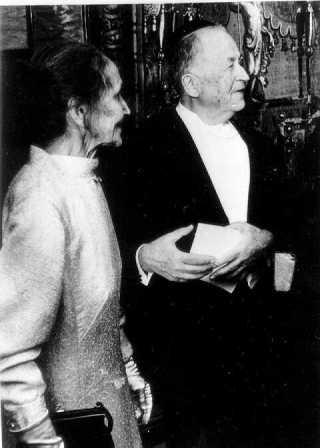
In December 1966, Shmuel Yosef Agnon was awarded the Nobel Prize for Literature. Various people and organizations had for a long time, recommended him to the Nobel Committee for Literature, until finally their efforts paid off. The Committee decided to award Agnon the prize "for his profoundly characteristic narrative art with motifs from the life of the Jewish people". Agnon was the first citizen of the State of Israel to receive a Nobel Prize. Part of his speech at the ceremony is cited on the NIS 50 bill, and appears along with his portrait.
Agnon was born in the town Buczacz. His original name was Shmuel Yosef Czaczkes. He grew up in a religious family, but read classic literature and the writings of the haskalah. When Agnon was 15 he wrote his first poem. In 1908 he came to Palestine and continued publishing poems and stories. The first story he wrote on his arrival in Palestine was named Agunot (Forsaken Wives); in accordance with this, he changed his name to Agnon.
In 1913 Agnon left Palestine and moved to Germany for twelve years. During that period he collected Chasidic Stories with Martin Buber, among other occupations. In 1924 his house was burned down in a fire. The fire also burned his book collection and manuscripts of new stories that he wrote. That traumatic experience left a mark on his future writings and also affected his decision to come back to Palestine with his wife Esther and their children.
The Agnon family lived in a few houses in the land of Israel. One of the famous ones is in Talpiot in Jerusalem. That house appears in various stories and today serves as a museum. Next to Agnon lived other famous people. The CZA has documentation of a census of the Jewish population in Jerusalem in the year 1939. The Agnon Family is one of the families registered there. (See the document in the gallery at the end of this page).
Agnon died in the year 1970. After his death, his daughter published new stories that had not been published yet. Agnon books were translated into many languages and garnered much success around the world.